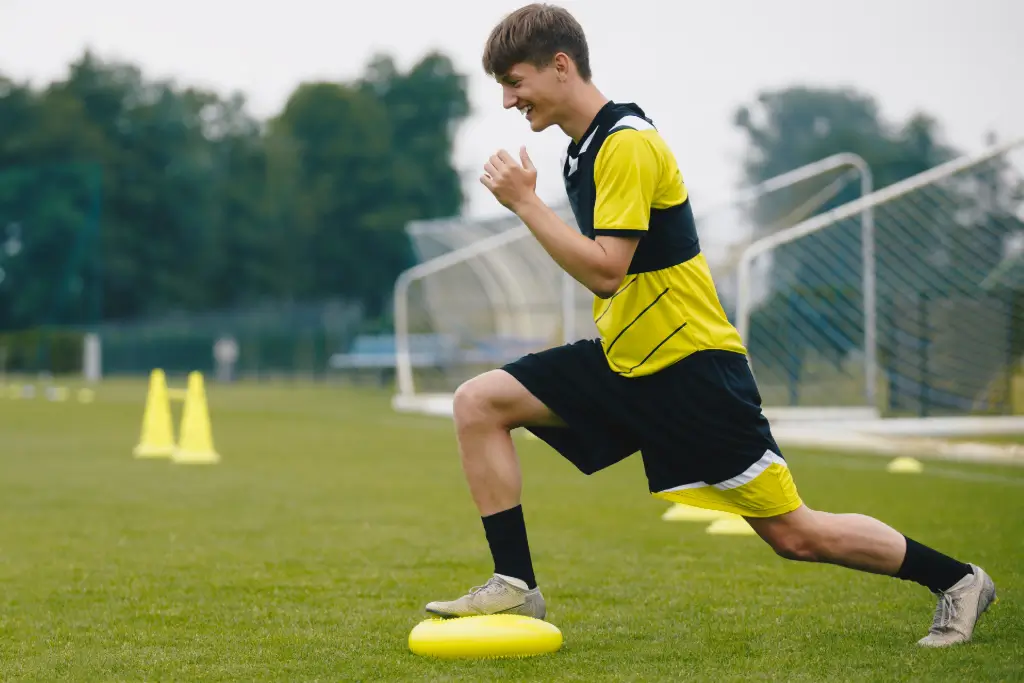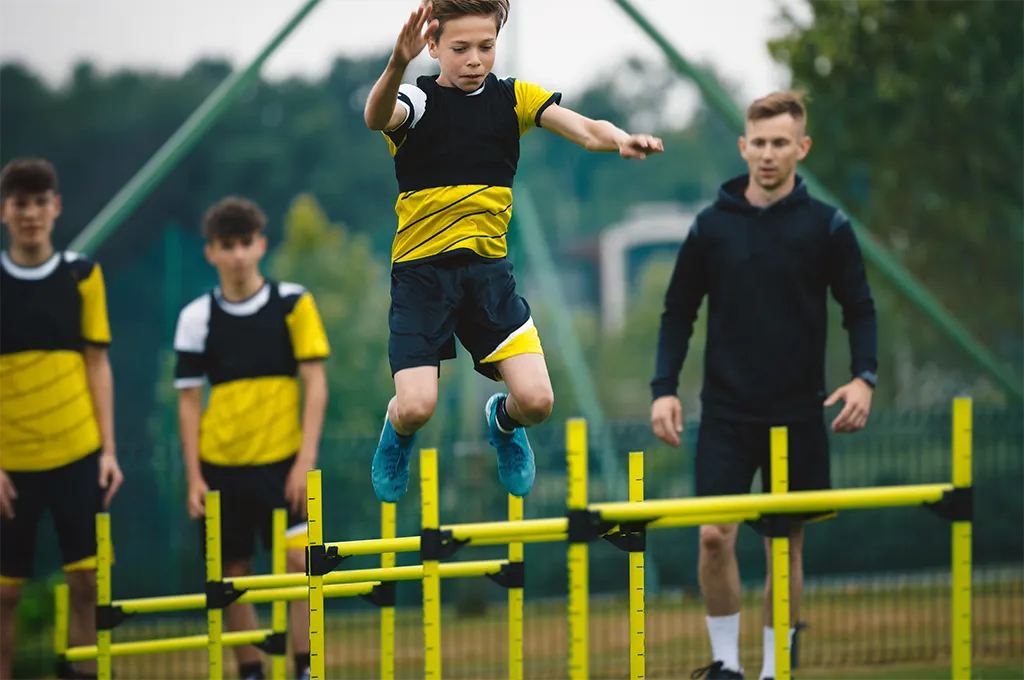Why Physical Development Matters at 13-16
Information for Parents - Supporting Your Child's Football Journey
The Science Behind the Programme
Your child is in a critical development window. Research shows that between ages 13-16:
Physical Development
Peak Height Velocity occurs, allowing for 30-50% strength gains
Neurological Development
Motor learning capacity peaks - skills learned now become permanent
Athletic Foundation
85% of professional players received specialized conditioning during their teens
Injury Prevention
Proper strength training reduces injury risk by 40% in youth football
This window won’t stay open forever. The physical and neurological adaptations possible now become much harder to achieve later.
How We Support Your Child's Club Success
We’re Not Competition – We’re Collaboration
Many parents worry about overloading their child or conflicting with club training. Here’s how we actually enhance their club experience:
What Clubs Focus On (And Should):
- Technical skills development
- Team tactics and formations
- Match preparation and strategy
- Competitive game experience
What We Add:
- Individual physical conditioning
- Mental resilience training
- Injury prevention foundation
- Confidence and character building
The Result: Your child arrives at club training fitter, stronger, more confident, and better prepared to absorb the technical and tactical coaching.
What to Expect:
Your Child's Journey


Weeks 5-12: Development Phase
What You'll See:
Noticeable strength and speed gains
Improved confidence in physical challenges
Better recovery between sessions
Enhanced focus and determination
What We're Building:
Advanced strength and power
Speed and agility enhancement
Game-specific conditioning
Mental resilience under pressure
Weeks 1-4: Foundation Phase
What You'll See:
Initial fitness improvements
Learning new movement patterns
Increased enthusiasm for training
Better understanding of their body
What We're Building:
Movement quality and injury prevention
Basic strength foundation
Training habits and discipline
Introduction to mental skills
Weeks 13-16: Performance Phase
What You'll See:
Significant physical transformation
Leadership qualities emerging
Clear development goals for the future
Consistent high-level performance
What We're Building:
Peak athletic performance
Advanced mental skills
Long-term development planning
Preparation for next level challenges
Supporting Your
Child at Home
Nutrition Guidelines
Proper nutrition supports your child’s development:
Pre-Training (1-2 hours before):
- Complex carbohydrates (pasta, rice, oats)
- Moderate protein (chicken, fish, eggs)
- Plenty of water
- Competitive game experience
Post-Training (within 30 minutes):
- Protein for muscle recovery (milk, yogurt, protein shake)
- Carbohydrates to replenish energy
- Continue hydration
Daily Habits:
- 5-7 portions of fruits and vegetables
- Adequate protein at each meal
- Consistent meal timing
- Limit processed foods and sugary drinks
Recovery and Sleep
- 8-10 hours of sleep per night
- Consistent sleep schedule
- Screen-free time before bed
- Quiet, cool sleeping environment
Managing Training Load
- Persistent fatigue
- Declining performance
- Mood changes or irritability
- Frequent minor injuries
Communication is key – we work together to ensure optimal training load.
The Mental Side: Building Resilience
Why Mental Training Matters
Research shows that 65% of talented young players drop out due to mental pressure, not lack of ability. We address this directly through:
Confidence Building:
- Celebrating progress, not just results
- Teaching self-evaluation skills
- Building on strengths while addressing weaknesses
Pressure Management:
- Pre-match routine development
- Breathing and focus techniques
- Positive self-talk training
Resilience Training:
- Learning from setbacks
- Goal-setting and planning skills
- Building mental toughness
DO:
- Focus on effort and improvement, not just results
- Ask about what they learned, not just how they performed
- Celebrate small wins and progress
- Maintain perspective on the bigger picture
Avoid:
- Comparing to other players
- Focusing solely on match results
- Adding pressure about professional careers
- Criticizing mistakes immediately after games
Investment and Value
Understanding the Cost (£50 per month)
- 6 professional coaching sessions per week (4 via our app, 2 in-person)
- Specialised app technology and tracking
- Individual attention and feedback
- 16 weeks of structured development
- Foundation for lifelong athletic success
Long-term Value
- Injury Prevention: Avoiding costly injuries and time off football
- Enhanced Performance: Better results at club level
- Character Development: Life skills beyond football
- Future Opportunities: Physical and mental foundation for higher levels
- Confidence: Benefits that extend to school and social situations
Cost Comparison:
- Private personal trainer: £30-50 per session
- Specialist sports coaching: £25-40 per session
- Our programme: Less than £2 per professional session
FAQ - Common Parent Concerns Addressed
No – proper conditioning actually improves recovery and energy levels. Your child will have more stamina for club sessions, not less.
Our programme is specifically designed for 13-16 year olds based on developmental science. This is actually the optimal age for this type of training.
The free taster session allows you to assess fit before committing. Our experience shows that once players see improvements, motivation increases significantly.
Absolutely not. We want your child to excel at their club. Everything we do is designed to make them a better club player.
join the performpro academy program
Ready to Support Your Child's Development?
Start with a FREE taster session to see how our programme can benefit your child’s football journey.